Although tiered Internet has been a topic of discussion for years, it took on a more serious tone after strict limitations were imposed in late summer of last year.
Many ICT industry activists oppose this special privilege and believe that it will not bring any benefits.
According to IDEA, More than a year has passed since the day the Minister of Communications announced the preliminary steps towards tiering the internet. In July of the year 1401, during an appearance on the television program ‘Jahan Ara’, he announced the removal of filters on certain platforms for specific segments of society and stated, ‘We are pursuing the coordination of various agencies so that in the near future, some filtered platforms can be unblocked [filter removal] for specific groups like professors or journalists, based on their needs.’
After the dark autumn of 1401 and the extensive filtering of popular platforms in Iran, tiered internet took on a more serious tone, and every institution and authority discussed its implementation under different names. Internet with proper access, open internet, special internet, and professional internet are among the various names that have been repeatedly used for this public differentiation.
Recently, it has also been heard that the plan for ‘unfiltered tourist SIM cards’ has been approved by the working group for the elimination of criminal content of the country’s prosecutor’s office. This was announced by the Deputy Minister of Tourism, who stated that their request is for travel service offices, hotels, tourist guides, and foreign tourists to use these SIM cards.
According to Ali-Asghar Shalbafian, a meeting was also held between the Ministries of Tourism and Communications, the prosecutor’s office, and law enforcement agencies regarding the implementation of this plan. This development has been referred to by a member of parliament as a cultural capitulation.
In this regard, Hasan Hashemi, the head of the National Computer Guild Organization, stated:
The primary advantage of the virtual space is its inclusiveness, which allows users from different parts of the world to experience accessibility and fairness. It is this very advantage that has led to the significant expansion of the virtual space, creating a parallel world alongside the real one. Therefore, any action or behavior that seeks to undermine this fundamental advantage is neither acceptable nor effective.
I believe one of the main factors contributing to the crisis in the digital economy is misguided filtering policies and the resulting disruptions in the network, which have thrown thousands of businesses into turmoil and created problems for many others. In such circumstances, the implementation of schemes labeled as ‘special internet,’ but in reality are nothing more than tiering the internet for specific groups, is unprofessional and unethical. From the outset, the Nasr Organization has opposed this concept and rejected the idea of exploiting such rent-seeking practices.
However, it seems that some are attempting to normalize the tiering of services and extend it to all sectors. One day, airline tickets may become scarce, and only certain sales offices will offer tickets to specific customers at special prices. Another day, receiving a car might become tiered and rent-based. And one day, the tiering of the internet may also be pursued.
Ahmadreza Nakhjavani, former CEO of the Shatel Group, stated:
The statement by Milton Friedman that ‘Government’s solution to a problem is usually as bad as the problem itself!’ seems to apply to the current situation of tiered internet. As is often the case, we introduce solutions that are almost unheard of and rarely come to the minds of others, while ignoring the experiences of the entire world, involving approximately two hundred countries. These solutions, which are presented under the guise of creating a ‘special internet’ but in reality amount to tiering the internet for specific groups, are unprofessional and unethical.
It is essential for individuals to critically evaluate the logic behind imposing restrictions to determine how reasonable and principled they are. Then, we should seek innovative solutions. Meanwhile, we should assess how successful the stringent policies that have been implemented have been in achieving their likely superior goals of creating access restrictions. At the very least, based on the available evidence and from our perspective as one of the largest families of fixed communication service customers, there has been no significant change in users’ access to filtered apps and content. Instead, it has only increased user dissatisfaction and, in addition, created an underground market for unauthorized businesses, generating financial turnover several times that of the operators, for selling VPN services.
Regarding the issue of tiered internet, it is worth examining the industry’s past experiences. Approximately 16 years ago, an extremely unconventional rule was defined whereby operators were not allowed to offer services with speeds exceeding 128 kilobits per second to residential users (!). This led to a chaotic market where users were forced to register under fictitious legal entities, or they had to provide certificates from educational institutions, among other things, stating that they needed higher speeds for research purposes. Ultimately, it seemed like the entire population of the country consisted of scholars and researchers since everyone had a valid certificate. Interestingly, our foreign partners and observers from outside the country often considered these practices as humorous and absurd. Most intriguingly, these regulations created employment for a group of individuals within government organizations who conducted audits in various cities to ensure that no operator had provided a user with a service exceeding 128 kilobits per second, and they promptly issued warnings and threats to communication operators!
Given all this, it is crystal clear to me that if we ever pursue such a solution again, all the previously mentioned consequences will reoccur in a more severe form. My recommendation to colleagues is to channel their focus and energy into addressing long-standing issues and deficiencies in fixed communication services. This way, users can enjoy their basic rights to high-speed and high-quality internet access, and the country’s fixed communication sector can improve its ranking from its current position between 140 and 150.
Nima Ghazi, President of the E-Commerce Association, stated:
It’s better if I answer this question with a question: What is the purpose of tiered internet? Why is there a felt need in the country to differentiate people’s access to information, and what problem does this initiative solve?
The increase in internet filtering that has occurred over the past year has had numerous consequences. For instance, access to social markets that were primarily formed on Instagram became limited or expensive. Now, if we grant access to internet activists but deny access to the general public, will the problem at hand be resolved? I don’t think so. For businesses based on the internet and online communications, unrestricted and unbounded user access is crucial because the growth of these businesses is directly related to the society’s unrestricted access to the internet.
Among the other consequences of these restrictions, we can mention a wave of mistrust, hopelessness, and ultimately, emigration. These have been among the most significant challenges in the ecosystem even before the implementation of this plan. Does tiered internet reduce these problems? Again, I believe it does the opposite, deepening dissatisfaction and hopelessness while reducing hope for improvement.
Aside from these issues, the recent history of the country’s economy is replete with experiences where special privileges were attempted for some in an effort to solve specific problems. Unfortunately, in most cases, not only were the problems not solved, but the creation of disproportionate rent-seeking opportunities also exacerbated the situation. When I hear the term ‘tiered internet,’ I can’t help but think about how this action may potentially create rent-seeking opportunities and corruption, diverting the time and efforts of individuals to unproductive sidelines.
The questions and issues mentioned above lead me to the conclusion that not only does this decision not provide a solution, but it also adds another problem to the country’s digital economy challenges, eroding a significant amount of trust and hope in society.
Mohammad Khalaj, CEO of the Snap Group, stated:
Labels like ‘Internet for Technocrats,’ ‘Open,’ ‘Professional,’ ‘Specialized,’ ‘Tiered,’ or any other name we put on it, imply depriving a significant portion of society of their legal rights. As a technology company, we are not seeking increased access to the internet at the expense of excluding others. According to the constitution, everyone has the right to unrestricted access to information, education, and more.
Providing facilities to a limited segment of the population could even lead to the downfall of innovative businesses. Currently, such businesses in the country are facing challenges related to the emigration of their valuable human capital, and these actions exacerbate the issue.
The internet is an exceptional tool for personal and collective development. Restricting this legal right for a select few hinders the education and growth of others, and in doing so, large companies lose a potential workforce. On the other hand, many individuals choose emigration due to a lack of access to desirable facilities, ultimately not benefiting the country’s digital economy.
Furthermore, as a result of such facilities, different people will attempt to join exclusive groups and categories to escape the created class divide. In reality, it cannot be claimed that professors, programmers, government institutions, etc., need professional internet access, but other segments, including elementary school teachers, students, employees, laborers, etc., do not.
We believe that an open internet contributes to the personal growth of all individuals and fosters the development of all businesses and professions. Special facilities for a specific group only result in collective dissatisfaction across all businesses, especially within the digital economy of the country.
Davood Zareian, Deputy for Commercial and Customer Affairs at MCI (Mobile Communications of Iran), stated:
In international documents such as those from the International Telecommunication Union and United Nations, the emphasis is placed on the free flow of information. The issue of universal and unrestricted access to information for all people, regardless of gender, is prohibited. Generally speaking, from a legal perspective, tiered internet access is not approved. However, from another perspective, it can be justified. For example, when it comes to boarding an airplane, people with more money may use first-class tickets, those with average financial means may use business-class tickets, and regular individuals may use economy-class tickets. In this sense, tiered internet access can mean that everyone has access to the internet, but if someone wants high-speed internet access, they can have a different type of internet access from others, and the quality of internet can also differ based on the amount they are willing to pay.
But if our intention in tiering the internet is to cut off access for some users and restrict access for others, it is not approved. Moreover, there is no international or even domestic commitment to such an approach. I believe this is an invention of the internet that only exists in our country.
What I have mentioned is not an endorsement or rejection of internet filtering. I believe that one of the duties of governments and authorities is to protect children and adolescents from the dangers of the virtual world. Therefore, programs should be developed to prevent abuse. In European countries, there are also restrictions on internet use for individuals under 20 years of age. It has even been suggested that parents can indirectly monitor their children’s online activities without their knowledge.
I think that if the government and authorities want to increase their control over social networks, tiered internet access is not the solution. Making access available to some subscribers while closing it off to others is discriminatory.
Shahabeddin Khodabakhsh CEO of Bazaar, stated:
For centuries, humanity has struggled to eliminate class systems and achieve free and equal societies. However, today in Iran, the issue of tiered internet access and unequal access to the right to freedom of information has arisen again – a natural right that is both interpretable from our country’s constitution and recognized in international documents such as the International Covenant on Civil and Political Rights.
Just two decades have passed since we had to provide various documents, certifications, and letters from this company and that organization to have access to high-speed internet. Now, in the 21st century, while many countries consider the right to unrestricted internet access self-evident and are involved in more significant discussions like minimum internet speeds, is there room in Iran for new rents and fresh troubles?
With the stratification of internet access, the people of our country will feel injustice and inequality. They will become distrustful of domestic businesses. Consequently, in the long term, the growth of businesses and technologies will stagnate, the digital economy will suffer, and many of our people, who may not have university education but are thirsty for knowledge and education, will be deprived of access to the unlimited treasure of global knowledge.
Moreover, a significant portion of our human resources, faced with more limitations than necessary, will prefer to leave rather than stay, and general literacy, creativity, and innovation will decline.
We have always said that Cafe Bazaar grows in a competitive environment alongside other players. For all these reasons, we declare our opposition to any form of restriction and tiered access to the internet.
Askhan Armendehi CEO of Divar, stated:
Internet for Professionals, Professional Internet, Tiered Internet, or any other name, it doesn’t matter what it’s called; I am definitely against it. And I express this opposition not necessarily as a member of Iran’s startup ecosystem but above all as an ordinary citizen of this country.
Because I believe that both the concept of a tiered internet and the use of it constitute a clear violation of the rights, freedoms, and dignity of our citizens and compatriots.
In today’s world, due to the widespread importance of the internet in our lives, ‘the right to free access to the internet’ is considered a fundamental and minimal human right. However, this plan is intended to officially divide people in Iran and declare that a small group possesses the competence to access a free internet, while the majority of the population does not! Based on this alone, I believe that, from an ethical standpoint, there is sufficient reason to oppose it, and there should be no doubt in explicitly expressing this opposition.
Of course, if someone looks at it from the perspective of the beneficiaries of a tiered internet, they might see some advantages. However, without a doubt, the broader perspective is the one that everyone else, including the general public, sees, and they will realize how their fundamental freedoms have been taken from them in using the internet. And aren’t the rest of the citizens and the people, besides being family members, friends, neighbors, fellow citizens, and compatriots of ours?
This matter becomes even more distressing when influential individuals in society, such as actors in the startup ecosystem, university professors, and others, actively support this tiered internet and practically endorse this incorrect interpretation of the people.
It’s also important to note that decision-makers believe that by providing a tiered internet, they are offering opportunities for businesses. Even if we assume this is the case, which it isn’t, we, at Divar, loudly declare that we do not seek such opportunities, and we believe that in a free environment, the potential for greater and more creative growth, both for businesses and for society as a whole, is much better.
Milad Monshipour CEO of Tapsi, stated:
One of the most fundamental infrastructures for the development of any country is free access to technology.
When we talk about development and economic growth for a country, free access to technology, including the internet, is an essential path.
On one hand, censorship, and on the other hand, stratifying access to the internet, benefit no one, as they pose a major obstacle to development.
While other countries, including neighboring countries, are rapidly investing in emerging technologies, dealing with issues like censorship, child protection, and tiered internet access is disheartening. Essentially, if we envision a path for a country’s development, today our discussion should not revolve around restricting internet access.
Providing tiered internet access may seem like a solution from the perspective of officials, but the reality is that society’s need for the internet goes beyond mere entertainment or business; it’s more akin to infrastructure, like roads and transportation. By the same logic, this approach of limited access does not benefit businesses either.
If a society is to move forward, all members of that society must be able to move in the same direction. Keeping a large portion of society stagnant prevents progress.
Providing tiered internet access is essentially stopping a significant part of society and opening the path for only a small portion; this path will never be successful.
Amirhossein Rad CEO of Nobitex Exchange, stated:
I have a few points to make about such plans:
-
Creating new bureaucracy and discrimination only leads to finding ways to bypass the restrictions on the internet. This means incurring expenses for something that does not create any specific benefits, neither for the government nor the users. It simply lays the foundation for a future decision reversal, which would be akin to removing a large stone.
-
Another problem with such initiatives is that if unrestricted access to the professional and limitless internet is a good thing, why shouldn’t it be made widely available? Many individuals may not belong to any knowledge-based company, yet the internet is an essential tool for their professional lives. With such plans, the rights of these individuals are disregarded. It should be noted that the class-based approach to the internet arises from a lack of appropriate understanding and a lack of foresight regarding the opportunities that the internet and the digital economy can create.
-
Finally, restricting the internet is one of the main factors contributing to dissatisfaction and influencing the migration of elite talents. By pushing for this wrong decision, the government imposes a significant cost on the economy and society. Introducing temporary solutions like professional internet only adds another layer of bureaucracy and does not provide a proper remedy for the problem.
Mostafa Amiri CEO of ZarinPal, stated:
The bitter and undeniable truths of life always remind me that throughout human history, equality has been a dream, and the bitter reality is the existence of social classes in human societies. The rich and the poor, the educated and the uneducated, the ruling class and the working class, masters and subjects, the upper city and the lower city, urban and rural, those on horseback and those on foot, and thousands of titles that express the bitter truths of life. However, all of this changed with the birth of the internet. It no longer mattered whether you connected to the internet from the top of the city or the bottom. For the protocols on which the internet was built, it didn’t matter if you were using the internet in the bustling streets of northern Tehran or in a remote and isolated village riding an old donkey. But suddenly, it seems that the playing field in this world has changed in a different way. The labels “filtered internet” and “internet without filters” for certain segments of society, as quoted from a first-hand account within a ministry that these days seems to be devoid of both communication and information technology, are more painful for me.
The internet, in its essence, was supposed to eliminate the constraints of time and space. It was supposed to provide equal access to people of all strata of society, be they black or white, rich or poor, remote or central. Now, it has become a tool for classifying segments of society. This classification, which is more than anything else, hurts me, and it sentences me to be wounded. The fact that some people are also queuing up for access to this type of internet is interesting in its own right, and it reminds me of what news there is in this nightly carnival.
For me, the model of problem solving in various issues in our country has never been clear. Why should the internet, which is supposed to be a tool for the advancement of society and the dissemination of knowledge, become a means of classifying and dividing society? The internet is a fundamental right that should be equally accessible to all, and individuals should be able to use it in the same way. Fundamental individual and social rights, such as the right to education, will also be violated with the implementation of tiered internet access, meaning unequal access to online educational resources. In general, making access to a fundamental right the exclusive privilege of certain groups, as the internet becomes a tool for classifying society, is a clear violation of the principle of equal access and citizen rights!
Over time, we are now witnessing the euphemistic term “tiered internet,” but it is forgotten that the problem has not changed. The problem remains the same. Changing words and phrases does not change the problem. The problem is this.
The problem is so clear that there is no need to play with words. The result of restrictive efforts in a world built on binary principles and proven laws, such as Moore’s Law, is clearer than daylight. Perhaps, as they say to the decision-makers in this field, the famous poems about flies and sparrows come to mind, which only make the connection more difficult.
Hamed Valipouri CEO of Azki, stated:
When it comes to the internet and access to the information it provides, I look at it from two perspectives. The first perspective is the part that specialists need. They use the internet to fulfill many of their needs, both in terms of tools and information, which can greatly assist them.
On the other hand, there is a perspective where the general public uses the internet. Free access to information, tools, and facilities provided by the internet helps society develop, grow, and economic growth is certainly achieved from that perspective. In other words, one of the most important factors in the country’s economic development is providing these internet facilities to the general public.
Therefore, as someone who runs a business, my main concern is to manage a business in a society that is growing and developing, and more wealth is being generated in it. I believe that the tiered internet contradicts this and may overlook the very effective arm that the internet can provide to society to achieve economic development through its own growth. This is where our concern lies, and we express our protest.
I think the tiered internet is not a good and desirable idea and cannot have the necessary efficiency. Our concerns are of a large and very big nature, and reducing the issue to the fact that only a group of specialists need the internet to meet their needs is a kind of oversimplification.
Another concern for tiered internet is the two-tiered society and the different behaviors towards society in such matters can have many consequences and create problems for businesses. For this reason, this idea does not have desirability.
Pooya Pirhosseinlu CEO of Abr Arvan, stated:
The root of the digital economy undoubtedly lies in free and high-speed internet access for all people in Iran. Technology is created by the people and for the people. Separate classification and the potential intensification of restrictions for the general public could permanently destroy the entire ecosystem of the country’s technology and digital economy.
With such an approach, the internet, which is one of the hopes for reducing social inequalities, becomes a tool for expanding injustice.
Arash Karimbeigi CEO of Shatel Mobile, stated:
I don’t believe that the plan for tiered internet can be implemented effectively in practice. Even if implemented, it doesn’t adequately address the concerns raised by its proponents. In the realm of accessibility to media, we’ve gained various experiences over the years, from radio licenses to restricting internet speeds to below 128 kilobits per second, and all of them have ultimately ended up futile.
I believe that events like the Telegram filter led to the widespread use and normalization of tools known as VPNs (Virtual Private Networks). Previously, having a VPN was not commonplace, and it was often associated with attempts to access unethical or inappropriate content.
However, with the expansion of internet filtering, especially after the Telegram filter, VPNs became a necessary tool for many, given that Telegram was a primary means of communication for a large segment of the population. This made VPNs a common tool for circumventing restrictions, and they became normalized.
Alongside these issues, the use of VPNs introduced significant risks to individuals’ privacy and security. It didn’t solve the core “problem,” and, in my opinion, it can sometimes exacerbate the issue and create deeper crises and controversies.
Currently, not updating and debugging systems and operating systems can amplify vulnerabilities and weaknesses in people’s communication infrastructure, platforms, and devices. The consequences of these actions can be far-reaching and significant for the general public.
Omid Alavi Chairman of the Blockchain Association, stated:
In the Formula 1 race, you cannot participate.
In an era where artificial intelligence and access to information are considered the economic and vital infrastructure of nations, we are in the process of cutting off people’s and businesses’ access to the world of information and the internet.
Even if we have learned an economic lesson from the coronavirus, we should know that countries in crisis have strong digital economies. The share of the digital economy in Iran is less than 5%, while other countries are striving to increase it to 40%.
We have become accustomed to hitting our heads against the wall, wasting the country’s various financial and human resources for a decade without any output? We know that bread is in the digital economy, yet we are cutting off the internet and making VPN salespeople rich.
Our managers and decision-makers have proven that they are competing with each other in not understanding and understanding late.
How much has India added to its GDP by exploiting our expert human resources in programming and IT, while we are exporting our human resources abroad?
Dubai, Oman, Turkey, and others are swallowing our human resources, and all these negligences and harm to the country are the result of rigid and non-comprehensive decision-making.
If you think that by cutting off people’s access to the internet, you can calm them down or control them, it is clear that you have neither understood the problem nor your own people. The solution to people’s problems and their dissatisfaction with cutting off the internet, satellite, video, and so on is not the answer. For the thousandth time, ‘Learn from the past.’
Reza Olfat Nasab Member of the Virtual Businesses Union, stated:
Certainly, discrimination in access to the internet, under any pretext, is unfair and doomed to fail. The fact that it is not precisely clear which individual or organization determines users’ access levels to the internet is indeed a perplexing aspect of our times. If the determination of these levels is within the jurisdiction of a committee tasked with defining criminal offenses, which includes government representatives and cannot evade responsibility in this regard.
The private sector must remain vigilant and not assume that limited and controlled internet access, at a time when other users do not have suitable access, is an asset for them. Unfortunately, some decision-makers believe that by restricting the internet and cutting off external platforms, they can forcibly align people with their way of thinking. I believe that with proper management of the virtual space, tapping into the potential of human capital, and facilitating conditions for virtual space activists, we can improve the current situation without concerns over time.
The government should work alongside the private sector and resolve its concerns and the concerns of stakeholders through collaboration. Given the current global situation, it’s possible that in less than 5 years, satellite internet without government intervention will be available to the public. Has the governing body thought about this day?
Mohammad Hakimi CEO of Ramzinex, stated:
Internet stratification is unfair from several angles. On the one hand, it limits free access to information for only a portion of the population. On the other hand, providing special privileges to certain segments of society will create serious disparities and lasting damages that won’t easily be resolved.
Another important point to consider in this regard is the corruptible nature of these privileges. For example, university professors might have seemingly logical access to greater resources, but individuals with fraudulent connections or deceitful means could potentially exploit this access, even without a genuine affiliation with the university or its professors.
The fundamental question here is how this will affect businesses, especially those in the cryptocurrency sector?
The reality is that while initially, offering such services to digital economy businesses that rely heavily on unrestricted internet might seem like it could help them, it will, in fact, create a significant divide between a business and its users and customers who do not have equal access to the internet.
Internet stratification can symbolize the gap between businesses and the people they serve, and businesses cannot ignore this discrimination against their most valuable assets: their customers.
Katayoun Sepehri CEO of Manesh Accelerator Company, stated:
Equal or Superior, that’s the issue!
With the advent of the knowledge-based and innovation-driven economy era, digital and data-centric economic transformations, the issue of protecting users’ privacy, safeguarding people against cybercrimes and data theft, ensuring security aspects, and national security have become important concerns for governments. Many countries have implemented restrictions for children and teenagers, some have filtered certain websites, and others have established specific interactive frameworks with global technology giants, thus providing greater freedom for their citizens.
In our country, in recent years, where discussions about internet censorship, filtering, nationalizing the internet, and efforts to establish a national information network have been hot topics, the issue of protection and its practical implementation has had its ups and downs. In general, it has been accompanied by widespread opposition from the private sector, civil society organizations, and activists in the fields of entrepreneurship and business development. Perhaps the most important reason for this opposition can be considered as opacity, lack of transparency, and the incorrect statistics and justifications provided by the proponents of this plan.
The reality is that filtering and the existing protection plan were already problematic, leading to disappointment and hardship for millions of rural and home-based businesses, vendors, and young emigrants with potential. Suddenly, another ominous bell rang in the entrepreneurship ecosystem: Ding… Dingggg… Internet Stratification!!
By whatever name they call it, the decision-makers decided to complement a part of the ineffective censorship policy with another bipolar policy! Regardless of the name, whenever there is talk of categorization, the names of rent-seeking and corruption shine brightly. The more unfortunate result of this action will be further reduction of social capital and an increase in the gap and distrust between the people and the government.
Categorized, grouped, suitable for specific groups, or specialized internet, violate the “right to equal access to the internet among the people” and the “right to access public services without discrimination.” After activating the child lock (Safe Search) for everyone, once again, the authorities have shown that they believe people lack the intelligence to make their own decisions and require larger and more interventionist oversight.
If only these paternalistic decision-makers remembered that people make decisions for themselves about whether to use or not use content, services, or platforms and consider themselves as the judges of individuals who have directly or indirectly voted for their current position!
Maryam Najafi Secretary of the Electronic Commerce Association, stated:
One of our demands as participants in the digital economy ecosystem of the country is the removal of internet disruptions and monopolies. If we want to witness the growth of the digital economy in our country, we must understand that restricting the internet does not lead to positive outcomes. According to reports, Tunisia had the freest internet among Arab countries, and its digital economy constitutes a significant portion of its GDP.
Furthermore, adopting a punitive and class-based approach to the internet does not solve any problems. The internet is considered one of the fundamental rights of individuals. If the government is concerned about cultural matters, it should be aware that 40 to 60 percent of the population follows news through satellite TV channels. Additionally, the fact that 50 million users are on Telegram demonstrates the widespread use of circumvention tools by the people. Therefore, internet censorship only disrupts the daily activities of users.
In summary, a class-based internet does not address any of the government’s concerns and only creates discrimination. Taking a security approach to user data is not inherently wrong and exists in all countries. However, censorship and restrictions are not the right solutions to this issue; rather, building trust among the people should be the goal.
Nima Namdari CEO of Karnameh, stated:
Any form of selective Internet restriction is a mistake. Firstly, because the principle of filtering websites and social networks is fundamentally flawed, and selective filtering doesn’t make the core issue tolerable. To put it in a well-known phrase, you can’t fight fire with fire.
Secondly, such restrictions are a clear example of discrimination, and discrimination angers people even more. That’s why they say injustice beyond a certain limit becomes justice.
Thirdly, from an economic perspective, it’s not fair. When the internet tariff is the same for everyone, why should the quality be different for different individuals? Imagine everyone buying a bus ticket at the same price but some are not allowed to sit.
Fourthly, from a technical perspective, it’s foolish because the essence of the internet infrastructure is decentralized, and any form of isolation is easily circumvented.
Fifthly, such actions send a message to citizens that some of them are superior to others, which goes against the country’s interests and weakens national solidarity.
Sixthly, from a legal standpoint, it’s not possible to deprive a portion of society of a right that has been granted to another without them having committed any wrongdoing.
Seventhly, even if none of the above seven reasons existed, selective internet is still a mistake because it is a branch of filtering. This tree has problems at its root, and by adding another branch, the problem doesn’t become weaker; instead, it becomes more tangled, not less.
Arian Afshar CEO of Finnova, stated:
The restrictions imposed on the Internet, not once, have caused damages that may not be repetitive in expression, but the most important consequence of it is the people’s and businesses’ distrust in a government that was not accountable because the imposition of restrictions was not under its authority.
We are all aware that the most important factor for the advancement, growth, and development of the economy is trust that forms between individuals, industries, businesses, enterprises, and the government. By imposing restrictions without reason, not only does this trust dissipate, but it also creates numerous challenges with the introduction of complex and cumbersome laws and regulations, making activities in this area increasingly difficult.
Certainly, the first consequence of these activities is the prevention of the growth and development of businesses, and on the other hand, the motivation for starting businesses diminishes day by day. When we talk about the knowledge-based and innovative economy, we speak of the importance of human resources, capital, and an open and stable economy in reality. However, in practice, we are moving closer to a command economy day by day, where we cannot preserve our capable human resources, nor attract capital whose real goal is growth in a competitive market.
Now, with the emergence of tiered Internet, the first steps toward a command Internet must be taken alongside a command economy. The day when elite managers should spend their time and focus on launching or expanding businesses, they are constantly involved in obtaining complex permits, worrying about the stability of the Internet, employees’ unrestricted access to the Internet, and other issues that yield nothing but distraction. Sometimes, we forget that people and businesses also have the right to life and freedom.
Majid Mousavi CEO of Alopeyk, stated:
Who can deny the impact of the internet on the lives of citizens in recent years? The truth is that educational justice, equal employment opportunities, economic activity, and entrepreneurship have all become possible for all citizens, even in the most deprived areas of this vast country, through the miracle of free internet. Many skilled young people have turned into key players in our ecosystem, even without academic education, through self-education and leveraging the opportunities provided by the internet.
Access to free internet has improved the quality of life for elderly citizens as well. Statistics from last year indicate that at least 9 million people are earning income on Instagram, which translates to around 1.7 million businesses. Unless, according to the third principle of the constitution, the government is obliged to use all its facilities to achieve these goals, and most importantly, to eliminate discrimination and monopolistic tendencies!
Let’s be realistic; tiered internet is a monopolistic rent for a small portion of society and contradicts the text of the constitution and the rights of citizenship for a larger part of society. Do defenders of this class-based divide know how many percent of Instagram businesses are there? Or how many percent of them are managed by female heads of households? Official statistics for small and home businesses active on Instagram do not exist because they are not part of any union or guild, but they certainly have rights. Last year, many of these businesses had their storefronts on Instagram suddenly closed at the discretion and judgment of authorities, while eliminating unfair discrimination and creating equitable opportunities for all is part of our constitution in all material and spiritual fields.
Alopeyk, as part of the ecosystem, has always declared its opposition to discrimination and monopolistic tendencies. Our mission, as well as the other members of the ecosystem, is to create value by providing services and equal employment opportunities for all citizens, regardless of age, gender, ethnicity, education level, etc. Our response to creating a class divide in society will not be in favor of tiered internet.
Hamid Reza Ahmadi CEO of Evand, stated:
Last year, we witnessed a significant increase in extensive filtering activities. As a result, accessing the free internet has become increasingly difficult. This harms everyone. Apparently, the authorities are trying to reduce the public filtering’s harm by introducing segmented internet, which is both unfair and does not solve the fundamental problem.
Bahman Imam CEO of Achareh, stated:
These days, we occasionally hear discussions about tiered internet, whether it’s a professional implementation or something similar. No one knows the details of this plan yet, so discussing and writing about it is speculative and uncertain. However, regardless of the specifics of this plan, there are some principles that we can remember.
Just imagine in a city, clean and pressurized water is provided for some citizens while others receive contaminated, dripping water. Some people have clean air, while others breathe polluted air. It’s a terrifying thought, isn’t it?
These days, the internet has become a necessity of life, much like water and air, and people of all ages, from children to the elderly, are dependent on it. Any restrictions on this need stem from the belief that the internet and the flow of information are owned by someone, and they only share it with others if they want to. However, the opposing view considers the internet, like air, water, and natural resources, to be the property of all the people.
But if we look at this issue from a business perspective alone, we must say that no business will thrive in the long run unless the well-being of its customers is ensured. Even if the internet is made suitable for online businesses, we won’t get anywhere without users and customers who can also use this internet. It’s similar to a fancy and clean restaurant with a path full of flowers and candles at the entrance. Clearly, no business will succeed in that scenario. Imagine having unrestricted access to the internet: you enter Telegram or WhatsApp, but there’s no one there to chat with. It might not be an exaggeration to say that, like happiness, if the internet isn’t available to everyone, it won’t exist.
Hadi Farnoud CEO of Hamfekr, stated:
Class-based internet, like all things that have become stratified in society, is a form of rent-seeking and a way to silence IT professionals so that they, too, remain silent for their own benefit and do not engage with society.
As it seems from the ongoing campaign, there have been resistances from individuals in this field to not use this kind of internet, and people have promised not to use it.
In my opinion, such plans are somewhat aimless and unplanned efforts to silence some people. Moreover, using it will not solve any problems and will actually harm everyone. Therefore, everyone should resist it and refrain from using it.
Mostafa Hosseini CEO of Maktab Khooneh, stated:
At Maktab Khooneh, our goal is to assist individuals in improving their personal skills and education. We believe that the most valuable asset of a country is its human capital.
Considering the significant migration of skilled and specialized workforce, particularly in the software and digital fields, one of the contributing factors is undoubtedly the lack of access to free internet for all members of society. Ensuring such access can play a crucial role in retaining valuable individuals.
Mohammad Reza Sobhan CEO of Tivan, stated:
From several perspectives, we can look at tiered internet. Firstly, anything that leads to rent-seeking is corrupt. Tiered internet, as defined here, provides a new avenue for corruption in a country that struggles with this issue in various matters.
The next issue is how we view the internet as a tool. If we view the internet as a one-way tool, used by some to gain knowledge and conduct their businesses, then perhaps tiered internet can be justified. Here, we need to examine who should determine who has the qualifications to use the internet without filters and who does not.
In my opinion, there is no government authority that has the competence to make such judgments. The reality is that the internet is a two-way tool. Alongside its supplying aspect, there must always be a receiving aspect. When we cut off access to the internet for the general public, we limit access to many businesses, social networks, and more.
Now, when we reserve the internet for an elite group, many things become nearly impossible. For instance, let’s assume an elite individual with access to an open internet has designed a product like a chat application. If regular users cannot access that product, it becomes useless. Trying to optimize internet usage through tiering is a superficial approach. Those proposing such ideas lack an understanding of the concept of a multiparty internet.
Mohammadreza Azali Co-Founder of Tekrasa, stated:
The plan for tiered internet is essentially a solution to obscure the real issues, and its root cause lies in the government’s misguided understanding of the problems.
Limiting people’s access to the internet is not an appropriate solution to address the existing problems. Instead, the focus should be on addressing the inefficiency and ineffectiveness of the government and, consequently, responding to the demands of the people for improved conditions. By restricting access to the internet for different segments of society, the government deprives itself of hearing the voices and demands of the people.
Furthermore, providing tiered access to the internet deprives a portion of society of equal opportunities, leading to social injustice, the creation of social divides, and ultimately the country’s backwardness.
Other consequences of this issue include the demise of industries related to the digital economy and the country’s increased dependence on declining industries like the oil sector in the next 20 to 30 years.
Lack of equal opportunities, the demise of the digital economy, and the closing of the country’s political space due to restricted internet access disappoint the country’s elites and assets, prompting their emigration, which causes serious and irreparable damage to the country.
Therefore, the only solution at hand is to listen to the people, acknowledge the problems, solve them, and achieve tangible results in people’s daily lives. Restricting access to the internet does not help in resolving these issues.

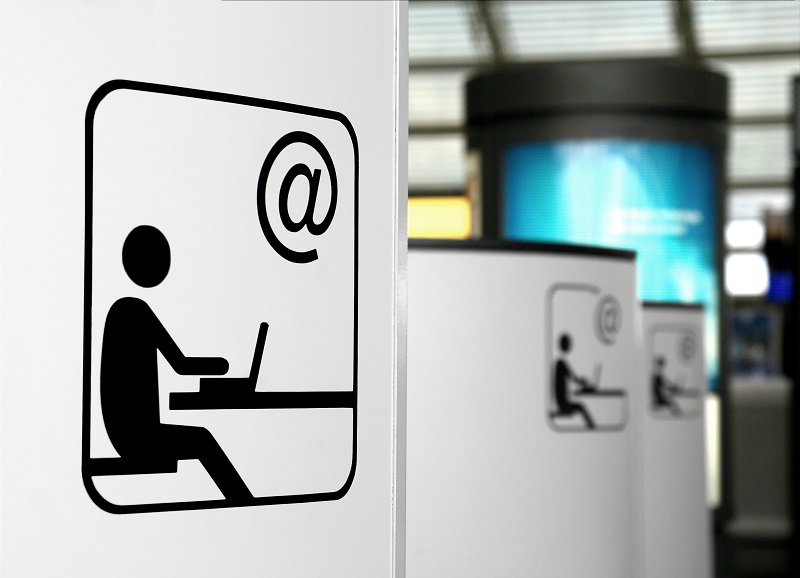
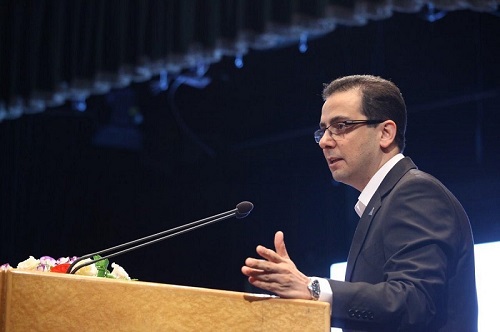
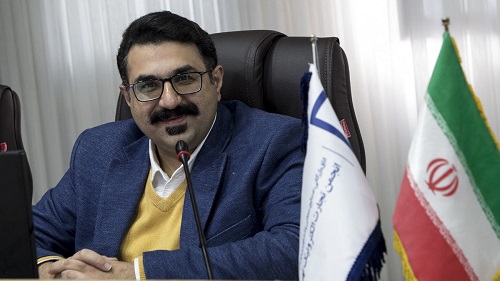
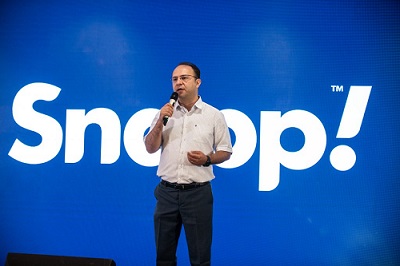
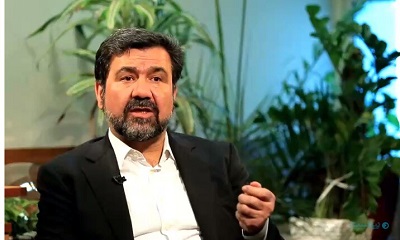
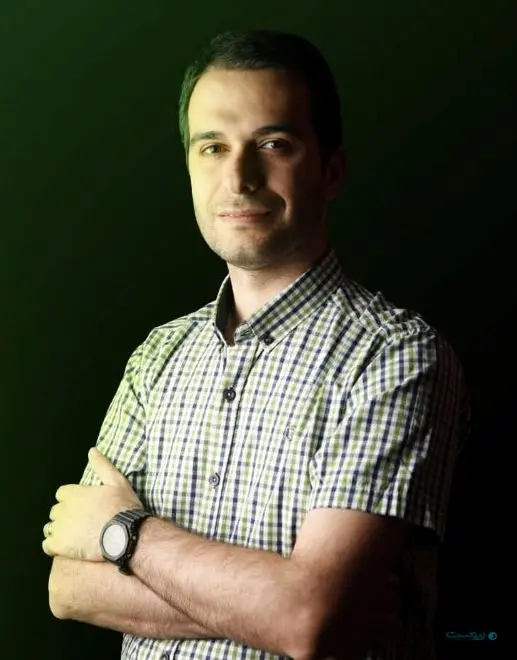
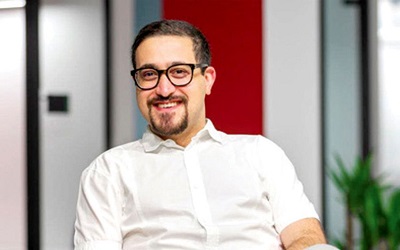
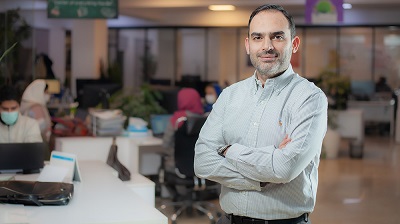
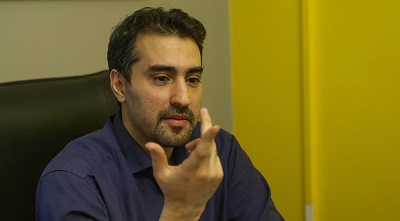
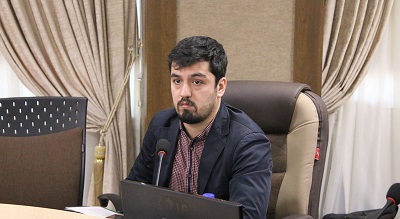

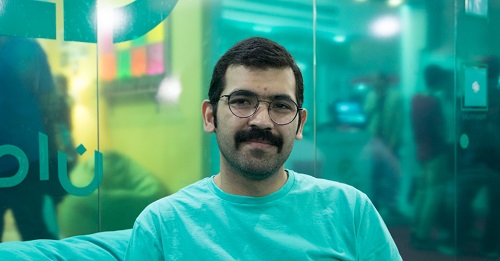
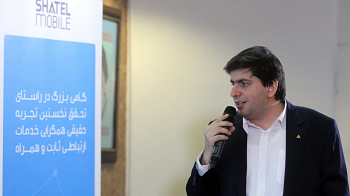
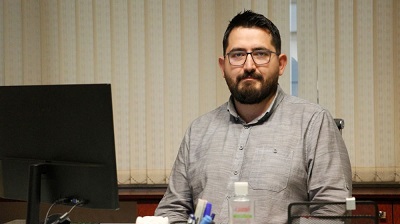
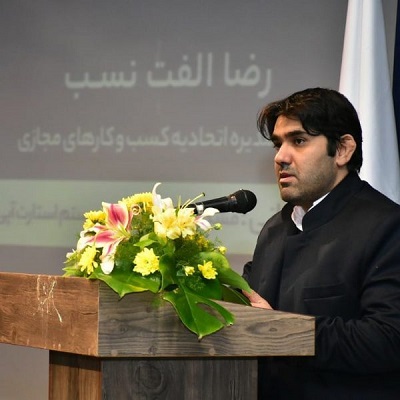
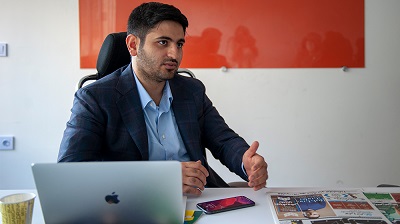
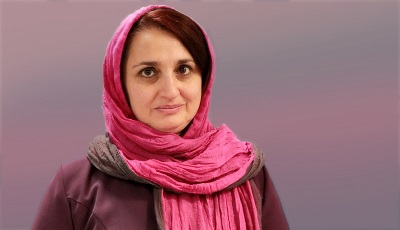
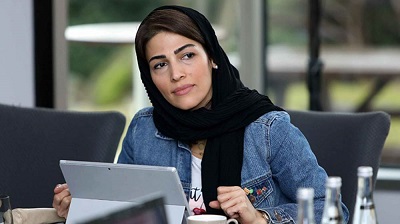
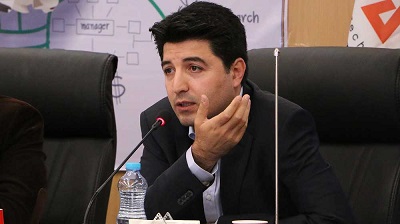
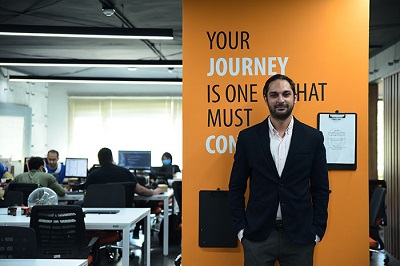
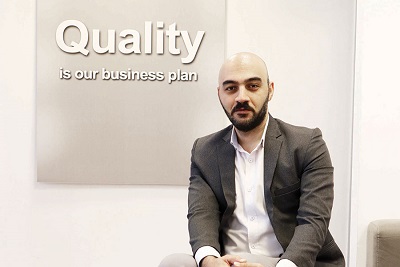
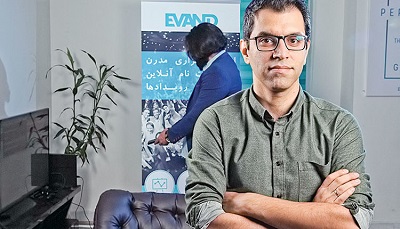
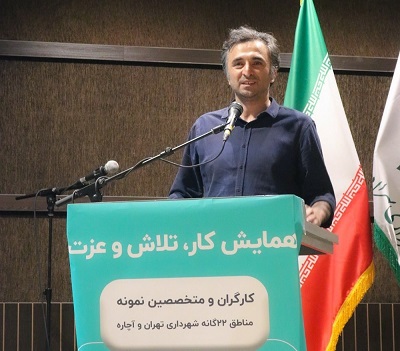
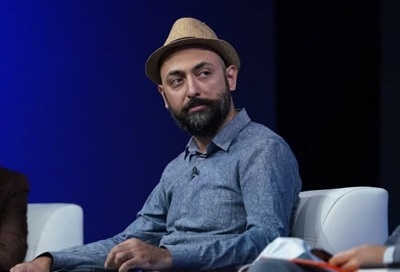
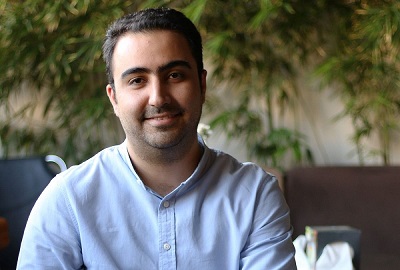

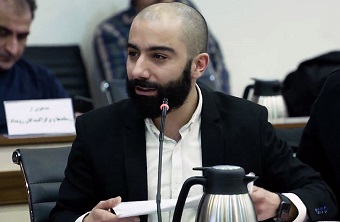


No Comment! Be the first one.